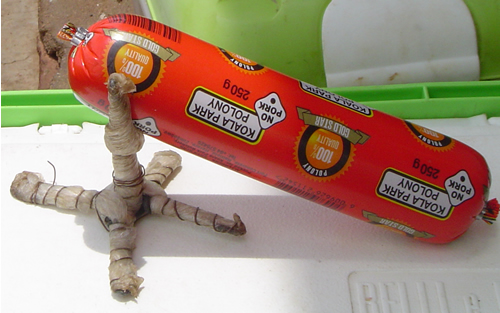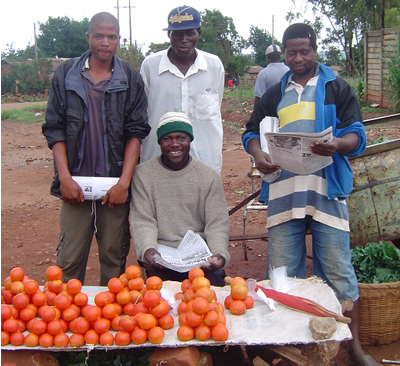As we commemorate this year’s 16 Days of Activism Against Gender Based Violence, I want to think of some of the Zimbabwean women I have met in the course of the year. I will try and give you a snapshot of their lives. These are women who I dare say, will not be celebrating much this year except perhaps being alive.
Martha* is a courageous woman. She was assaulted two weeks ago in Mudzi where she had gone to follow up Sarudzai*, a victim from 2008. When Martha got to Sarudzai’s homestead she was told that Sarudzai had not been back since 2008. I do not know where Sarudzai is living now. I do not know whether she is still alive. I do not know how she is faring. As for Martha, she has recovered from the assault that she was subjected to. She smiles and puts a brave face on it because as she says, this is not the first time. She has had it worse before. My attitude towards the violence she has been subjected to is not as blasé as hers seems to be. I get upset, I get angry and then I am afraid. Afraid for her because, one of these days, they will accomplish what they have spent the last 10 years trying to do. Beat her into silence. Beat her into submission. Beat her to death because with Martha, I am sure death is the only way they will silence her.
Rutendo* knows the pain of displacement only too well. At 64, she had to suffer the pain and humiliation of being gang-raped by boys young enough to be her grandsons. The trauma of that experience lives with her still. None of her close relatives know about her ordeal. She never went back home after that night. Now she goes from relative to relative, living from day to day, wondering when she will die. She wonders if she could be infected but she has not been able to go for tests. It’s a lot for her just to wake up and go about the business of living. Rape is not an event. It lasts a lifetime.
Chipo* is a 33 year old woman. In September, she had not seen her children since December 2009. She could hardly talk about her children without breaking down. They now live in the rural areas with their paternal grandparents and Chipo does not have the money to go and visit them. Her oldest son will sometimes beg some kind adult and call Chipo. He will beg her to come and get them. But Chipo has not been able to get her life together. You see, Chipo was brutally beaten and raped. When that happened, her husband decided he could not live with a woman who had “tasted” other men. He told her to leave. Chipo tried to hang on to her two children, but without a home, it was difficult. She made the decision to take the children to their father because at least he still had somewhere to live. She had nothing. Rape is not just about the woman; it is about the woman, her husband, her family and her children. They too are victims.
Someone else who knows the impact of violence on children is Bertha* who is 44 years old. Her youngest child was 1 month old when she was subjected to brutal beatings and rape. Bertha is convinced that the days she spent sitting outside exposed to the relentless June cold in 2008, as punishment for her and her husband’s political beliefs are what killed her son. I met Bertha just two weeks after she buried her son. Bertha says her remaining children are so traumatised by the violence they witnessed that every time they see strangers approaching their home, they run away into the bush. One such time her son saw a man they recognised from the 2008 beatings of her mother. He was walking along the road that passes by their home. They thought he was coming for them and they ran off into the bush. Her 7-year-old son fell and broke his arm. Two year after the violence, these children are still traumatised. As for Bertha, she is still trying to rebuild her life. Starting with rebuilding her home, which was burnt down for the 3rd time in August 2008. Violence breeds poverty. Violence leaves victims battling with trauma.
Should l tell you about Agnes*? She was beaten and raped until she lost consciousness. Her husband’s grandmother found her still unconscious the next morning. She roused her and hid her in the bush. There she was to spend the next 5 days while traditional herbs were applied to try and heal her. You see in the violence, the men who were raping her tore through her vagina to her rectum. Agnes lost her husband. When he came back, they went for tests and she was HIV Positive. He tested negative. He divorced her. That was in December 2008. Agnes has to live with HIV. She has to go to the toilet often and she is always worried that she smells. That is her daily reality. That and the recurrent nightmares and panic attacks. Did l mention that she has to carefully choose where she walks in case she meets one of her attackers?
I could go on, but l won’t. I am sure you get the picture.
The theme for this year’s 16 Days of Activism is Structures of Violence: Defining the Intersections of Militarism and Violence against Women.
The Centre for Women’s Global Leadership defines militarism as:
An ideology that creates a culture of fear and supports the use of violence, aggression, or military interventions for settling disputes and enforcing economic and political interests. It is a psychology that often has grave consequences for the true safety and security of women and of society as a whole. To embrace militarism is to presume that everyone has enemies and that violence is an effective way to solve problems.
I am sure most of us are familiar with the rhetoric that we have been fed with each successive election. Already this is being ramped up ahead of the rumoured 2011 elections. The Zimbabwe Peace Project in their October 2010 Report state that there have been 47,882 reported violations since 2008. These include rape, assaults, intimidation, discrimination, kidnapping, unlawful detention, arson and torture and displacement. There is clearly an ideology that seeks to create a culture of fear and which supports the use of violence for political and economic ends. Analysts have spoken about the militarisation of the State in Zimbabwe (appointment of the military to strategic institutions like Zimbabwe Prisons Service (ZPS) the Zimbabwe Republic Police (ZRP), the Central Intelligence Organization (CIO), the Zimbabwe Electoral Commission (ZEC), and parastatals such as the National Oil Company of Zimbabwe (NOCZIM), the Grain Marketing Board (GMB), National Railways of Zimbabwe (NRZ) but have not really examined what it means for women.
The women I spoke about above were victims because they were wives, sisters and daughters and even daughters-in-law of political activists. Others were activists in their own right. Their bodies became canvases on which was inscribed in blood, the messages of hate and violence. Militarisation means increased insecurity and violence for women. It means exclusion from political life. It means a reversal of all the gains that had been made in the past 30 years. It means spending money on the military and quasi-military apparatus and not on the efforts to prevent the deaths of the 725 women who die every year while giving birth.
Section 23A of the Constitution gives everyone a right to participate in the political affairs of this country. Violence negates that right. It drives fear into whole communities. It divides communities. It breeds poverty, disability and death. It undermines the full realization of the human potential in our communities. 23 years after the signing of the Unity Accord that officially ended the military campaign that killed over 20 000 people, the after effects are still being felt. You see, once you lose your father, mother, brother or sister, they remain lost you forever.
But this is not just about the 3 or 6 months in the year where all reason is suspended as politicians fight it out on the community battlefield. A wise person once said, “What people tolerate in peace shapes what they tolerate in war”. The problem is, with increased militarization, violence will become more and more entrenched and “normalized.”
*Names have been changed.











